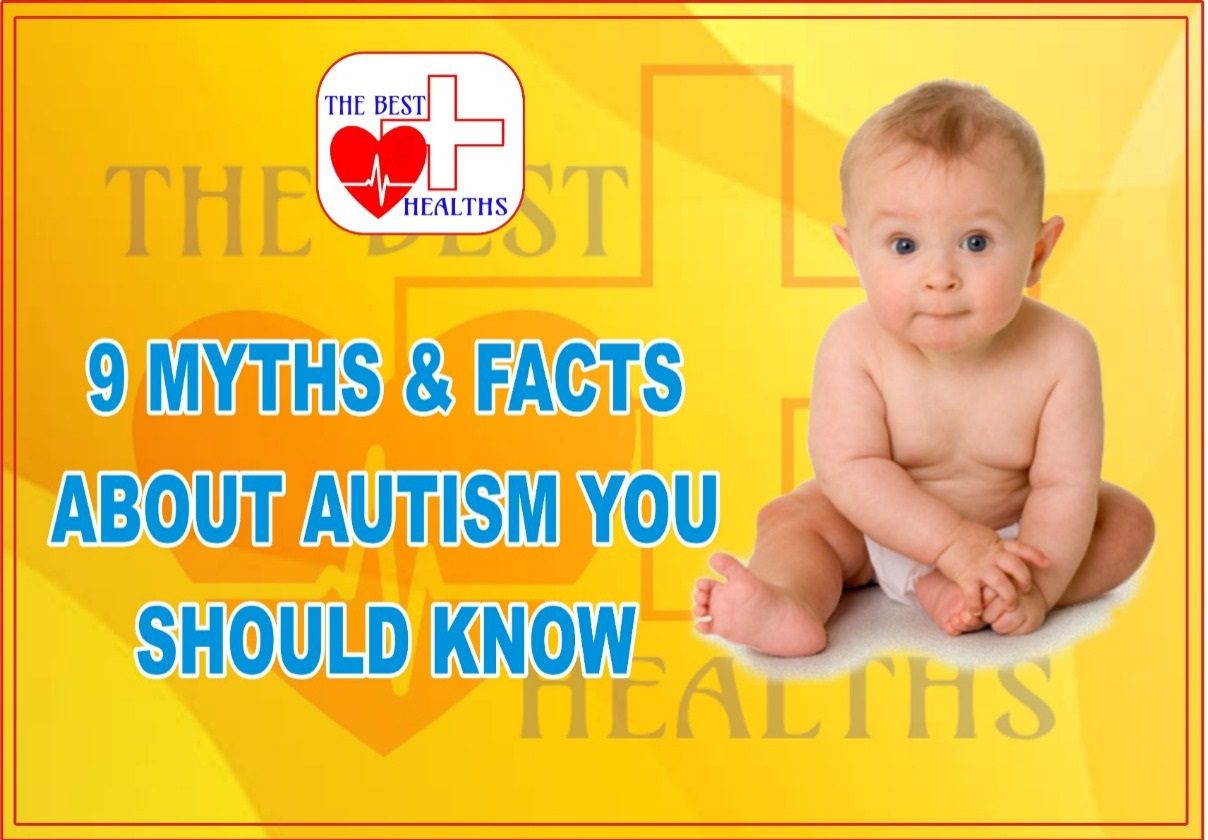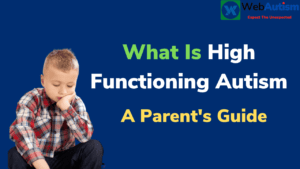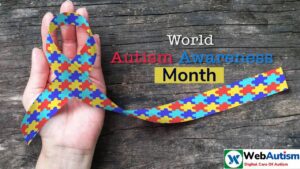We will discuss myths and facts about Autism. Autism is a neurological disorder that affects a person’s ability to communicate and interact with others. People with autism often have difficulty understanding social cues and may be unable to make eye contact or carry on a conversation. They may also have repetitive behaviors or restricted interests.
Autism spectrum disorder (ASD) is a term used to describe a group of disorders that share similar symptoms. ASD includes a range of conditions, from mild to severe. Some people with ASD need very little support, while others may need more extensive assistance.
Like other conditions, there are plenty of myths and misconceptions about Autism due to lack of knowledge about it. It’s essential to educate people about autism so that they can support and understand people with Autism.
Myth 1: Autism is a disease.
Fact: Autism is not a disease but a neurological disorder.

Autism is known as a Autism Spectrum Disorder because of the range of symptoms it can present, ranging from mild to severe. Autism is differentiated as a disorder because it cannot be cured and is an integrated part of an individual’s personality.
Diseases are impairments of normal bodily functions as a result of internal or external reasons. Disorder is a broader term that involve physical and mental health conditions.
Myth 2: Vaccines causes autism.
Fact: No correlation established between Vaccines and autism by research.

Today, it’s decided that there is no link between autism and vaccination. More recent studies have shown that signs of autism are seen at pre-vaccination stage and there is increasing evidence of autism being detected in utero.
Myth 3: All individuals with autism are geniuses.
Fact: The link between autism and intelligence is exaggerated.

People with autism can be extraordinarily intelligent, like non-spectrum people can be intellectually gifted. The myth comes about as a result of the improper correlation between prevalence and intelligence. The fact is, about a tenth of the people with autism have savant abilities (Extraordinary intelligence). These abilities can be seen in a variety of ways, including musical talents, exceptional memory and calculation skills, artistic abilities and preoccupation with a specific subject matter. While the myth of autism and genius may seem to be exaggerated, in reality, a wrongly informed public can result in false expectations and further misunderstanding of autism spectrum disorder.
Myth 4: Children with autism have mental disabilities.
Fact: Autism cannot be seen as a mental disability; it is a spectrum condition that can result in a broad range of symptoms.
Autism is considered a neurodevelopmental disorder since it is typically diagnosed within the first several years of life. People with and without autism spectrum disorder (ASD) can have mental disabilities. However, a person with autism doesn’t automatically have a mental disability. Autism spectrum (ASD) presents with such a wide range of symptoms that it is inappropriate to refer to all people with the disorder as having a mental disability.
Myth 5: People with autism do not feel emotions
Fact: People with autism like others have emotions and may struggle with emotional regulation or expressing their feelings.
Many people with autism spectrum feel overloaded and highly anxious. Challenges with expressing these feelings can result in disconnection from their emotions, but this is not the truth. The internal experience and external behaviour of someone with autism spectrum can vary widely. This can result in a lot of misunderstanding about how autistic people feel their emotions.
Myth 6: People with autism don’t need friends.
Fact: People with autism need friends like others.

Because of difficulties in communication and emotional expression, people with autism may struggle with making friends. The assumption that people on the autism spectrum don’t need friends can be damaging and results in to increased social isolation. People with autism may have a difficult time initiating social contact as a result of the symptoms of the disorder. Difficulty with eye contact, challenges with communicating are all possible symptoms of autism spectrum disorder, which can results in to challenges in developing friendships.
Myth 7: Autism is caused by parenting problems
Fact: Autism is a neurological condition and has no correlation to parenting methods.
While cause for autism is not known, genes & environments are considered possible factors. The autism and bad parenting myth is a cruel one that causes a negative impact on the parents of children with an autism spectrum disorder. Parents of autistic children require support and understanding rather than misplaced judgment. Those raising children on the autism spectrum often face a range of barriers to accessing required services, including financial burden and limited health care resources.
Myth 8: There’s an autism epidemic going on.
Facts: Increases in autism diagnoses can largely be the result of changes in diagnostic criteria and awareness.
Autism diagnoses has increased from 1 in 1,500 in 1975, to 1 in 59 in 2014. While this drastic increase may seem suggestive of an “epidemic,” but in reality Autism diagnostic criteria is expanded to include a spectrum of disorders; this inclusion of additional diagnoses under the umbrella of autism explains the increased rate of diagnosis of ASD.
Increased awareness of the condition is also a factor impacting diagnostic rates. As paediatricians, mental health professionals and parents become more aware of what autism is and how it presents in different ways, the condition is more easily identified. This can cause early intervention and treatment, which results better treatment outcomes. Superficially, the rise in autism rates over the decades may seem to indicate an epidemic, but in reality the medical community has gained a better understanding of the ASD & increased the diagnosis of Autism spectrum disorder.
Myth 9: Autism can be cured.
Fact: There is no cure for autism, but there are treatments that can help to improve symptoms & quality of life of individuals with ASD.
Treatment options such as applied behavioral analysis (ABA) TEACH & social stories can be useful interventions for autism spectrum disorder. Since autism spectrum disorder is a neurodevelopmental condition, it is an integral part of a person’s hard wiring. Since the cure for autism is not available, treatment focuses on managing and treating problematic symptoms across the lifespan & improving the quality of life. Early intervention and a variety of treatment options ensure a better outcome for those with an autism spectrum disorder.





